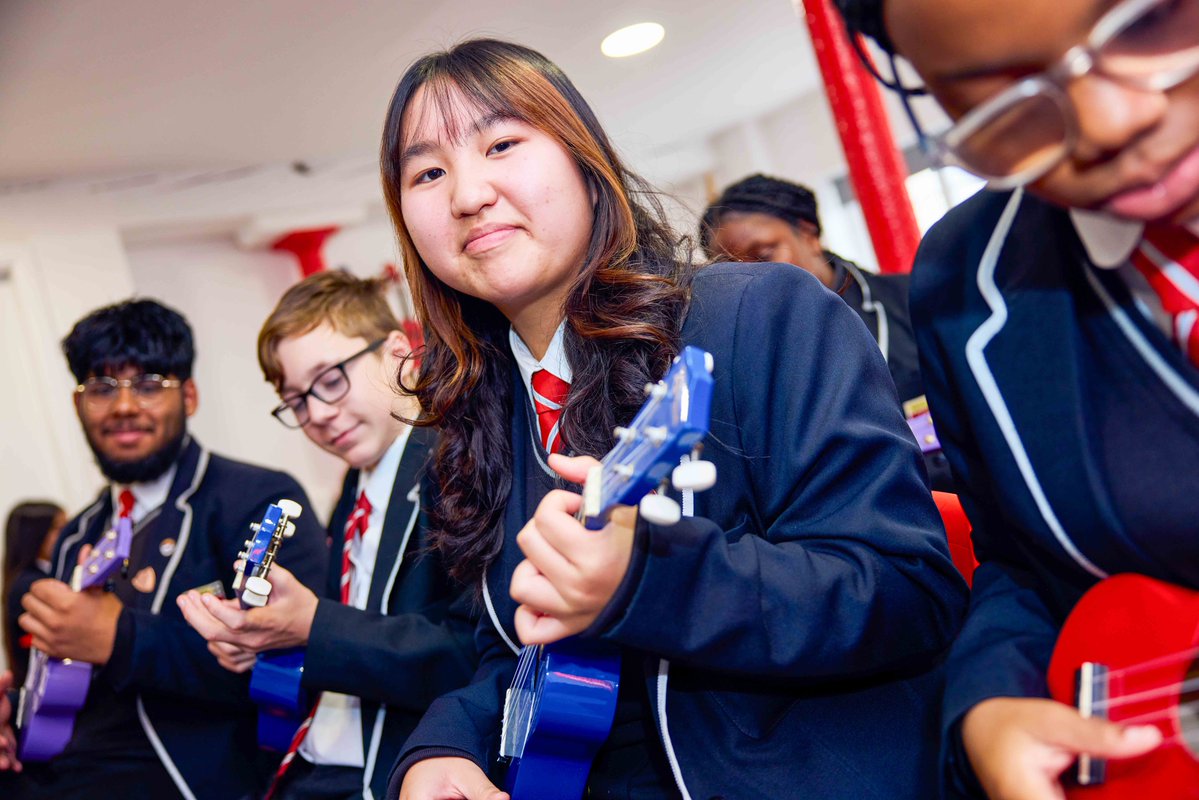Leadership Development Time (PSHERE)
Leadership Development Time (personal, social, health and economic, relationship and sex education) will help students to be leaders in their chosen field because it helps them to aim high, by establishing clear and challenging goals with a defined pathway, demonstrate grit to overcome challenges whilst nurturing good physical and mental wellbeing in themselves and others. It also gives students the skill set to foster and maintain positive relationships to build successful networks.
It takes students out of their comfort zone (and show growth) by overcoming challenges, all while nurturing good physical and mental well-being in themselves and others.
It helps students tackle social injustice (and demonstrate responsibility) by exploring all aspects of physical and mental health, how to help themselves and those at risk safe on and offline.
It helps promote ambition by providing support in establishing clear and challenging goals with a defined pathway. Students are guided to set and pursue ambitious objectives, understanding the steps required to achieve success in their chosen fields.
It celebrates diversity (compassion) by teaching students to foster and maintain positive relationships to build successful networks.
By valuing diverse perspectives, students learn the importance of empathy and inclusion.
It helps students develop independence (excellence) by encouraging them to take initiative and make informed decisions about their future. This skill is crucial for personal and professional growth.
Each term is themed around leadership linking with the Academy values of GRACE:
Autumn: Foster and maintain positive relationships to build successful networks (Compassion and Responsibility)
Spring: Demonstrating grit to overcome challenges whilst nurturing good physical and mental wellbeing in themselves and other (Growth)
Summer: Aim high, by establishing clear and challenging goals with a defined pathway (Ambition and Excellence)
The RSE policy can be found here.
When is it delivered?
Leadership Development Time is delivered once a fortnight in a 2-hour block, on a Monday week B. It is delivered at the same time to all students from Year 7-13.
|
Key Topic |
When is it covered? |
|
Radicalisation and Extremism |
|
|
Female Genital Mutilation (FGM) |
|
|
Consent |
|
|
Sexual Harassment |
|
|
Mental Health |
|
|
Domestic Abuse |
|
How is it delivered?
Leadership Development Time is delivered by tutors who know the students best. An LDT (Leadership Development Time) lesson follows the HSAEL lesson structure and students are set fortnightly core knowledge homework, which is then checked at the start of each lesson. Students will receive a booklet at the start of each lesson to guide them through, which is then stored in the student’s leadership portfolio.
At typical LDT lesson will follow the below structure:
- Read Now: Contextual safeguarding
- Daily Review: Checking understanding of prior knowledge from previous lessons and homework.
- Exposition: Delivery of new content focussing on that week’s topic.
- Deliberate Practice: Split into DP1, 2 and 3 to ensure all students can access the learning and are challenged.
Key Topics
|
|
Autumn 1 |
Autumn 2 |
Spring 1 |
Spring 2 |
Summer 1 |
Summer 2 |
|
Year 7 |
- What makes a healthy relationship? - Overcoming conflict and finding forgiveness - Recognising and preventing bullying |
- Growing up: physical and mental changes including menstruation - What is diversity? - Media literacy: staying safe online |
- What is mental health? - Social media and mental health - Healthy lifestyles: achieving balance |
- Healthy lifestyles: maintaining a balanced diet - Smoking and vaping: risks and consequences - Gambling: the facts |
- What is effective leadership? - Who am I?
|
- Exploring possibilities: dream jobs - What is a career? - What is a work life balance?
|
|
Year 8 |
- Spotting unhealthy and abusive relationships - Taking others' perspectives - Consent: what is it and why is it essential?
|
- Sexuality: coming out - Challenging gender stereotypes - Recognising and preventing discrimination
|
- Mental health: talking about our emotions - Mental health: developing coping strategies - Healthy lifestyles: taking responsibility for your physical health
|
- Healthy lifestyles: exercising for physical and mental wellbeing - Addictive substances: alcohol - Media literacy: interpreting information online |
- What is effective leadership? - What are my interests?
|
- Job Applications: CVs - Challenges and rewards of work - What does success me to me? |
|
Year 9 |
- Relationships and conflict - Understanding marriage - Female genital mutilation (FGM): facts and risks
|
- Sex, relationships, and the media - Practising safe sex - Social influences: young people and gangs
|
- An introduction to body image - What is a healthy lifestyle? - Addictive substances: legal and illegal drugs
|
Healthy lifestyles: health services, self examination and vaccination - Sex and consent online - Staying safe online: misinformation and extremism
|
- What is effective leadership? - What are my skills?
|
- Financial choices: budgeting, saving, debt - What comes after school? - What is the labour market and why is it important?
|
|
Year 10 |
- The impact of relationships - Navigating conflict in relationships - Understanding consent and intimacy: offline and online
|
- Understanding pregnancy: your choices - Sexual health: choosing and accessing contraception. - Staying safe online: protecting your personal data |
- Mental health: revisited - Alcohol: risks, consequences, and safety - Health-related choices: blood, organ and stem cell donation
|
- Illegal drugs: risks, consequences, and support - Substance addiction: how to seek help - Gambling: risks, consequences, and safety
|
- What is effective leadership? - Exploring employer profiles
|
- What types of careers is best for me? - Wellbeing in the workplace - Preparing to go on work experience.
|
|
Year 11 |
- What is effective leadership? - Post 16 choices
|
- Decision making - choosing your post 16 pathway. - Apprenticeship Vs Higher Education - Is AI a threat to our jobs
|
- Family life: parenthood and caring - Rights and responsibilities: marriage and civil partnerships - Understanding pornography |
- Sexual health: preventing and treating STIs - Know your rights: the Equality Act 2010 - Challenging prejudice and discrimination |
|
|
|
Year 12 |
- Respectful relationships: trust and intimacy - Respectful relationships: ending relationships - Making choices about pregnancy and parenthood |
- Making choices about your sexual health - Staying safe: recognising harassment and abuse - Understanding cultural identity and cultural competency |
- Body enhancement - Mental health: accessing support - Staying safe: alcohol and binge-drinking
|
- Managing our health: services and support - Staying safe: setting boundaries online - Understanding online misinformation |
- What is effective leadership? - Preparing for one to one guidance |
- Post 18 choices - Setting careers goals - How to network and be enterprising |
|
Year 13 |
- What is effective leadership? - Personal branding: CV and Online Profile |
- The basics of interview - Preparing for an employer assessment day - Confidently managing transitions |
- Respectful relationships: values and differences - Consent matters - Intersectionality, marginalisation, and privilege |
- Understanding inclusion - Staying safe: recreational drugs - Leaving home: building a healthy lifestyle
|
|
|
Safeguarding in the curriculum
Teaching our students about safeguarding is not limited to LDT lessons, assemblies and CED days. We are committed to never missing an opportunity to educate and empower our students with as much knowledge about the world around them as possible as they navigate their way to becoming young adults.
We passionately believe that well-structured, age-appropriate preventative education with regards to safeguarding is most effective in the context of a whole academy approach.
We have a vigilant and open culture, a place where students are prepared for life in modern Britain, that creates a culture of zero tolerance for discrimination and prejudice in any form.
The safeguarding across the curriculum document can be found here.
Supporting students
At the end of each lesson students are provided with signposting for where they might seek support both internally and externally, based on the topics that have been delivered in the lesson. The LDT resources are added to the student SharePoint folder, where students can revisit the content of the lesson in their own time. For our SEND students there is a termly support session to ensure they are supported with their learning across all topics.
Supporting staff
Staff are supported in the delivery of LDT through regular CPD delivered by the safeguarding team and external agencies. Resources are planned centrally, and lesson visits are arranged during the LDT slot to support the delivery of these lessons. Less experienced tutors are paired with more experienced ones to ensure the LDT lessons are delivered effectively.
Parents and carers
The LDT curriculum is readily available for parents/carer to view on the website and in each community bulletin the upcoming topics are shared including any key updates.
Parents/carers are free to withdraw their children from Sex and Relationships aspects of the LDT curriculum if they wish to do so. The only exceptions to this are the biological aspects of animal growth and reproduction that are essential elements of National Curriculum Science. To discuss this further please contact the academy: info@harrisscienceeastlondon.org.uk
External organisations
We work with a number of external organisations to compliment the delivery of some of the LDT topics. Please see below which organisations we have worked with and which topics they cover.
|
Session |
Topic Link |
Term |
Target Group |
|
Talk the talk year 7 transition support |
Confidence , Friendships and Consent |
Autumn 1 |
Year 7 |
|
Newham Road Safety Team |
Road Safety |
Autumn 1 |
Year 7 |
|
Just Like Us |
Bullying and LGBTQ+ |
Autumn 2 |
Year 9 and 10 |
|
UK Feminista |
Sexual Harassment and Consent |
Autumn 2 |
Year 9 |
|
“To Be Continued” Theatre production & Workshop |
Healthy Relationships and Consent |
Autumn 2 |
Year 9 and 10 |
|
Emotional Wellbeing Assembly |
NHS Discovery - Anxiety and Exam Stress |
Autumn 2 |
Year 12 and 13 |
|
Robbery, vaping and sexting assembly - SSO Education |
Community Safety |
Autumn 2 |
Year 7-10 |
|
Brook |
Consent, Sexual Harassment, HSB |
Autumn and Spring |
Year 9-13 |
|
Odd Balls |
Testicular Cancer |
Spring 1 |
Year 7-13 |
|
Girls support Girls workshop |
Confidence, Relationship and Body Confidence |
Spring 1 |
Targeted year 9-11 girls |
|
Tender |
Healthy Relationships |
Spring 2 |
Year 9 |
|
Growth Against Violence |
Gangs, social media, weapons |
Spring 2 |
Year 7, 8,9 |
|
Kooth Workshop |
Mental Health |
Spring 2 |
Year 7 and 12 |
|
Game Changer |
Child Criminal Exploitation (CCE) and County Lines |
Spring 2 |
Year 10 and 11 |
|
Absnt Mind |
Mental Health, Body Image, Cyber Bullying |
Spring 2 |
KS3 |
|
Voice Box CIC |
Health masculinity and harmful behaviours |
Spring 2 |
KS4 and KS5 |
|
Stand Up! Education Against Discrimination |
Discrimination, antisemitism and anti-Muslim hate. |
Summer 1 |
Year 7-10 |
|
IKWRO - Women's Rights Organisation |
Forced marriage, child marriage, “honour” based abuse, female genital mutilation and domestic abuse. |
Summer 1 |
Year 9-13 |
|
Change Grow Live Newham Children & Young People's Services |
Mental health awareness and emotional well-being, building resilience and coping strategies, understanding and managing substance use, healthy relationships and positive decision-making |
Summer 1 |
KS3 and KS4 |
|
Brave Programme |
Newham Prevent |
Summer 1 |
KS3 |





















